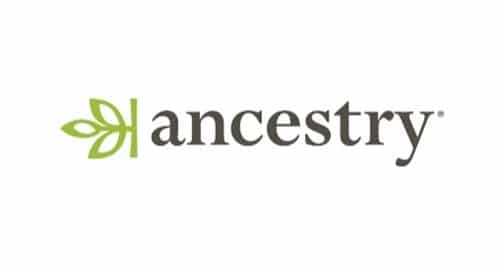
The 5 Best Sites for Family History Research
THE 5 BEST SITES FOR FAMILY HISTORY RESEARCH
“History remembers only the celebrated, genealogy remembers them all.”— Laurence Overmire
Recording one’s family history is a combination of mystery, admiration, and excitement. And pulling back on the layers of family history is one of the most rewarding endeavors anyone can undertake.
While tracing one’s roots is indeed a gripping proposition, finding reliable sources of information can prove to be challenging.
In some cases, enthusiastic family historians may have the willingness to do the legwork. However, they may not know where to begin.
In this article, we will discuss the five best sites for family history research. These sites contain a trove of genealogical information compiled through decades of research and data processing. Consulting these sites can provide family historians with a nudge in the right direction.
Understanding Sites for Family History Research
Traditional family history research involves going through archives such as birth, marriage, and death records, newspaper articles (still on microfiche sometimes), church registries, military documents, and personal items (photographs, letters, and diaries).
While these information sources can prove highly insightful, tracking down records can be extremely time-consuming and costly.
But what if there was some way to gather all of this information into a single database?

Thanks to information technology, compiling millions of records is now possible.
As computers took over every component of society, the gradual digitalization of most public records has enabled the creation of vast databases.
Nowadays, a great deal of information is publicly available.
The key is knowing where to find such information.
Even with a high degree of digitalization, it can be quite complex to sort through vast amounts of records. Doing so can prove equally time-consuming. Of course, sifting through digital records does not compare to thumbing through paper files at a local library or town hall.
Sites for family history research offer a viable alternative for uncovering one’s roots. These sites offer free and paid subscriptions that enable users to go through available records in hopes of finding useful data. For instance, a basic query using a family name can reveal the names, birthdates, and places of residence of long-lost relatives. More in-depth services can locate information on birthplaces, dates of death, and descendants.
Nowadays, family history sites offer a wide range of services. For instance, these sites offer comprehensive family history reports, photo albums, and video presentations. Indeed, paying for these types of services can greatly facilitate building one’s family history, particularly when there is very little to lead the way.
The question then becomes: What are the best sites for family history research?
The following sections will shed light on this crucial question.
The 5 Best Sites for Family History Research
1. Ancestry.com
Ancestry.com has established itself as the market leader in the online genealogy industry. Its ubiquitous television and internet advertising have positioned it in the minds of consumers. Most users regard Ancestry.com as the best overall family history research site.

In general, Ancentry.com has access to more than 27 billion records. Also, this family history research site offers DNA testing services. Its price ranges from $16.50 to $49.99 a month. The subscription packages’ costs increase depending on the options and services chosen.
Pros:
- It has an enormous archival database.
- It is quite user-friendly and has an intuitive feel.
- It boasts great customer support.
Cons:
- It is one of the priciest options on the market.
- It offers a free 14-day trial. Access locks following the trial period.
- Price increases are based on the types of records accessed.
The verdict:
On the whole, Ancestry.com is the best all-around value for serious family historians. It is a great starting point for anyone looking to recreate their family history, given its massive database and intuitive feel.
While it can get somewhat costly, access to Ancestry.com’s vast archives makes it a worthwhile investment. Users should strive to get the most out of this genealogy site considering its overall cost.
2. MyHeritage

MyHeritage is a relative newcomer to the online genealogy scene.
Nevertheless, this family history research site offers good value for money.
MyHeritage is not quite as robust as Ancestry.com. According to its company information, it holds roughly 12 billion records. It also offers DNA testing services. It offers virtually all of the same services as Ancestry.com, but it costs less, ranging from $129 to $299 annually.
Pros:
- It offers a robust database.
- It is a fun and user-friendly site.
- It allows photo updating, such as colorizing older black and white photographs.
Cons:
- It offers an annual, not monthly, subscription but it has a 14-day free trial.
- Its database is not quite as extensive as Ancestry.com’s.
The verdict:
MyHeritage is a great alternative to Ancestry.com. It essentially offers the same features as Ancesty.com at a lower price point. Given that MyHeritage also offers DNA testing services, users can find a viable alternative in MyHeritage. Overall, MyHeritage offers good value for money.
3. Archives
Archives is a great option for family historians who want to conduct a profound search on specific topics.
This family history site holds more than 11 billion records. The bulk of these records come from official sources such as government records.

Nevertheless, Archives has access to a substantial number of documentary sources. Archives is a relatively simple, no-frills service. There is no specialized app. Its interface is rather simple but effective. Archives starts at $9.99 a month.
Pros:
- It has a substantial database filled with official documentation.
- It is an affordable option at $9.99 monthly and also has a 14-day free trial.
- It allows users to build their family tree using quick search features.
Cons:
- It does not offer DNA testing services.
- It does not offer hints or search suggestions.
- It has a relatively simple interface which may get somewhat cumbersome at times.
The verdict:
Archives is a great supplementary source for other databases such as Ancestry.com or MyHeritage. Archives is great for searching old government or military records. As such, it is highly useful in tracking official information. Archives is a go-to option when searches hit dead ends.
4. FamilySearch

FamilySearch arguably delivers the best value for money as it is free to use.
This family history site functions on volunteer work. The Church of Jesus Christ of Latter-day Saints runs and maintains this site, hence its no-cost offer.
Overall, this site has uploaded more than 6 billion records since 1999. It is a great alternative for those looking to deepen their detective work. Like Archives, FamilySearch is a great ancillary source of information. The site is nothing to write home about. Nevertheless, the value it delivers more than outweighs its lack of a snazzy interface.
Pros:
- It is totally free to use.
- It offers a significantly large database filled with census data, military records, and certificates.
- It is a long-running site that offers a reliable service.
- They offer free genealogy classes.
Cons:
- It limits one family tree per account. Multiple trees require multiple accounts.
- There are no DNA testing services available.
- It’s interface may be relatively unfriendly for some users.
The verdict:
Given that FamilySearch is a free site, it is a no-brainer. While some may choose to use it as a springboard before committing to a paid subscription service, FamilySearch does have its limitations. Therefore, FamilySearch could very well serve as a great starting point for novice family historians. And the free genealogy classes offered by the site is an added bonus for beginning family historians.
5. Find My Past
Find My Past is a great option for persons of European descent.
This great family history research site focuses on European family history, particularly British and Irish ancestry.
Anyone who wishes to trace their European roots can find a great deal of information on this site, as it holds more than 2 billion records.
Find My Past’s archive may seem small, but it holds a treasure trove of data, considering that it has records dating back to AD 850.
Subscriptions on this site start at $129 annually.

Pros:
- It is ideal for those researching European roots.
- It offers DNA support services.
- It allows users to create multiple family trees.
Cons:
- It lacks a dedicated app.
- Its archive is relatively limited, particularly to those who do not have European roots.
- The DNA testing kit costs $89. Nevertheless, users can upload their DNA information from other sources.
The verdict:
Find My Past is a highly specific tool that is a useful secondary research alternative. This site can serve as a springboard for those who have European roots. From there, users may choose to sign up for other services such as MyHeritage or Ancestry.com. Find My Past offers good value for money despite charging extra for DNA testing services. On the whole, Find My Past delivers good overall value.
When to Hire a Genealogist
Online family history research sites help facilitate genealogy. These sites can greatly support in-person research, such as going to local libraries, town halls, or military offices.
However, there may be times when family historians may hit a wall. This proverbial wall usually entails leads drying up or somehow being unable to tie up loose ends.
In these situations, genealogy experts can provide an effective service.

A genealogist is a professional who specializes in researching family ancestry. These professionals have the knack for following leads and tying up pesky loose ends.
While they are research experts, they have something even more valuable: experience.
A genealogist’s experience lies in solving situations novice family historians may be unable to decipher. For instance, genealogists are familiar with records, archives, and databases that can help overcome dead ends. Moreover, a genealogist can help family historians craft an accurate representation of their family tree, narrative, and identity.
Additionally, enlisting the help of a professional genealogist can expedite the research process. Genealogists can aid family historians in sourcing records and even use their connections to gain access to archives. Indeed, hiring a genealogist may prove to be the best investment family historians can make.
When to Hire a Professional Writer
Some family historians may be eager to put their family history on paper. After all, extensive research into family history merits a worthy vehicle to showcase its value. For example, family historians may opt to write a book or memoir chronicling their entire family history or highlighting specific chapters of it.
Writing a book, memoir, or diary may prove to be a substantial undertaking. As a result, hiring a professional writer can help get this part of the process off the ground.
Professional writers have the skill and experience to take raw data (dates, numbers, facts) and translate them into an articulate narrative that appropriately depicts a family’s underlying narrative.
While they are both very valuable on their own, in tandem, a genealogist and a professional writer can form a successful collaboration.
These professionals can come together to build a clear representation of a family’s history.
After all, extensive data, records, documentation, photographs, and even DNA information need someone to thread them together into a seamless tale that preserves the voices of the forgotten ones.

One Final Thought
Researching family history is a marvelous undertaking. It is a labor of love. Thus, attempting to rush it may prove counterproductive. However, allowing a family history project to stagnate also does a disservice to a family’s heritage. Consequently, utilizing family history research sites can spur a stalled family history project onward. These sites can help untie knots and overcome obstacles. There is a very good chance that the missing piece of the puzzle is just a few keystrokes away.
Author and professor Liam Callanan once noted, “We all carry inside us, people who came before us.”
Indeed, every individual on this planet is the sum of their ancestors. So, it is only fitting that those that have come and gone take their rightful place in their family’s history.
While society may only celebrate the lives of a few, genealogy has the power to bring back those left behind by the history books.
Related Content
- 0 Comment
Subscribe to Newsletter
- Elevate Your Content: How To Use Canva for Eye-Catching Visuals
- These Tools Are Your Key to the Content Campaign Kingdom
- Strategic Content Marketing: Distribution Methods for Maximum Reach
- The Abilities and Limitations of AI in Content Creation
- How to Use AI to Power Up Your Marketing Communication Strategy



